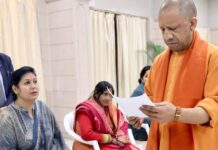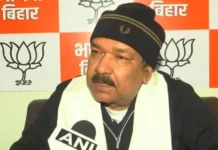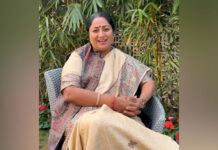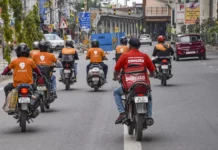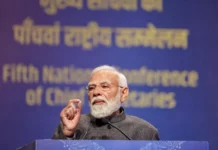 NEW DELHI: Looking to capture power after a gap of 22 years, the BJP mounted its one of the most aggressive campaigns in the Delhi Assembly polls so far, with Union Home Minister Amit Shah leading the saffron charge fuelled by its planks of Hindutva and nationalism, and its strident opposition to anti-CAA protest in Shaheen Bagh.
NEW DELHI: Looking to capture power after a gap of 22 years, the BJP mounted its one of the most aggressive campaigns in the Delhi Assembly polls so far, with Union Home Minister Amit Shah leading the saffron charge fuelled by its planks of Hindutva and nationalism, and its strident opposition to anti-CAA protest in Shaheen Bagh.
The BJP turned the heat on its rivals, primarily the Aam Aadmi Party, over the Shaheen Bagh protests, and its leaders are of the view that their strong stand against the protestors have put the party in reckoning for power in the national capital after it appeared to be “down and out” only months back.
Prime Minister Narendra Modi addressed two rallies and hit out at anti-CAA protests, saying agitations like the one in Shaheen Bagh were not merely a “coincidence” but an “experiment” to damage national harmony.
Modi and other top party leaders, including Shah and its national president J P Nadda, also raised development pitch, accusing Chief Minister Arvind Kejriwal of making false promises and highlighting the central dispensation’s works in the national capital.
However, issues of development were reduced to a sideshow in the BJP’s campaign as the party latched onto its pet themes to corner the ruling AAP, which pitched its campaign around issues of development and populist schemes like free power and water supply and bus rides for women.
In their bid to rally their supporters, several BJP leaders made controversial and even incendiary remarks against their rivals, prompting the Election Commission to take serious actions like barring Union minister Anurag Thakur and MP Parvesh Verma from campaigning.
Verma in a public meeting termed the Delhi chief minister a “terrorist”.
Shah, who spearheaded the party’s whirlwind campaign holding meetings and roadshows in about 60 constituencies, sought to focus on nationalistic, Hindutva pitch by targeting the AAP and the Congress on issues like abrogation of provisions of Article 370, Ram Temple, Triple Talaq, and protests against the Citizenship Amendment Act(CAA), in his speeches.
His trademark appeal to the voters during the meetings would be to vote for the BJP to defeat the AAP and the Congress accusing them of supporting ‘tukde-tukde’ gang and support Modi who was “safeguarding” the country.
The former BJP chief in a booth level workers meeting in December last year, said the party was going to form a government in Delhi, under the leadership of Modi.
Under sharp attack from the BJP heavyweights, both the AAP and Congress hit back accusing the party of trying to “polarise” the elections. Shah and other leaders countered the charge accusing them of practising vote bank politics.
The party held over 5,300 rallies, public meetings, nukkad sabhas, roadshows and other campaign related programmes during over three weeks long campaigning that began with start of nomination process on January 14, said party leaders.
The campaigning ended on Thursday evening with voting scheduled on February 8. The results of elections on 70 Assembly constituencies will be declared on February 11.
Shah held public meetings and roadshows in around 60 constituencies, while Nadda campaigned in all the 70 Assembly segments, said Praveen Shankar Kapoor, co-convener of Delhi BJP’s media team for the polls.
“During the elections, (campaigning) got a chance to communicate with Delhi people. Delhi suffering from anarchy needs development. It is clear from the support for the BJP seen in Delhi that BJP is going to form the government in Delhi by winning more than 45 seats on February 11,” Shah tweeted after the end of campaigning.
The star campaigners of the BJP included Uttar Pradesh Chief Minister Yogi Adityanath, who made vitriolic attacks on Kejriwal and Shaheen Bagh protest, accusing the Delhi chief minister of providing ‘biryani’ to the anti-CAA protesters.
Entire top brass of the BJP, including Union ministers, senior national office bearers, chief ministers of the party ruled states, more than 200 MPs, and workers and leaders from various states camped in the national capital holding small meetings everyday in different constituencies. PTI

